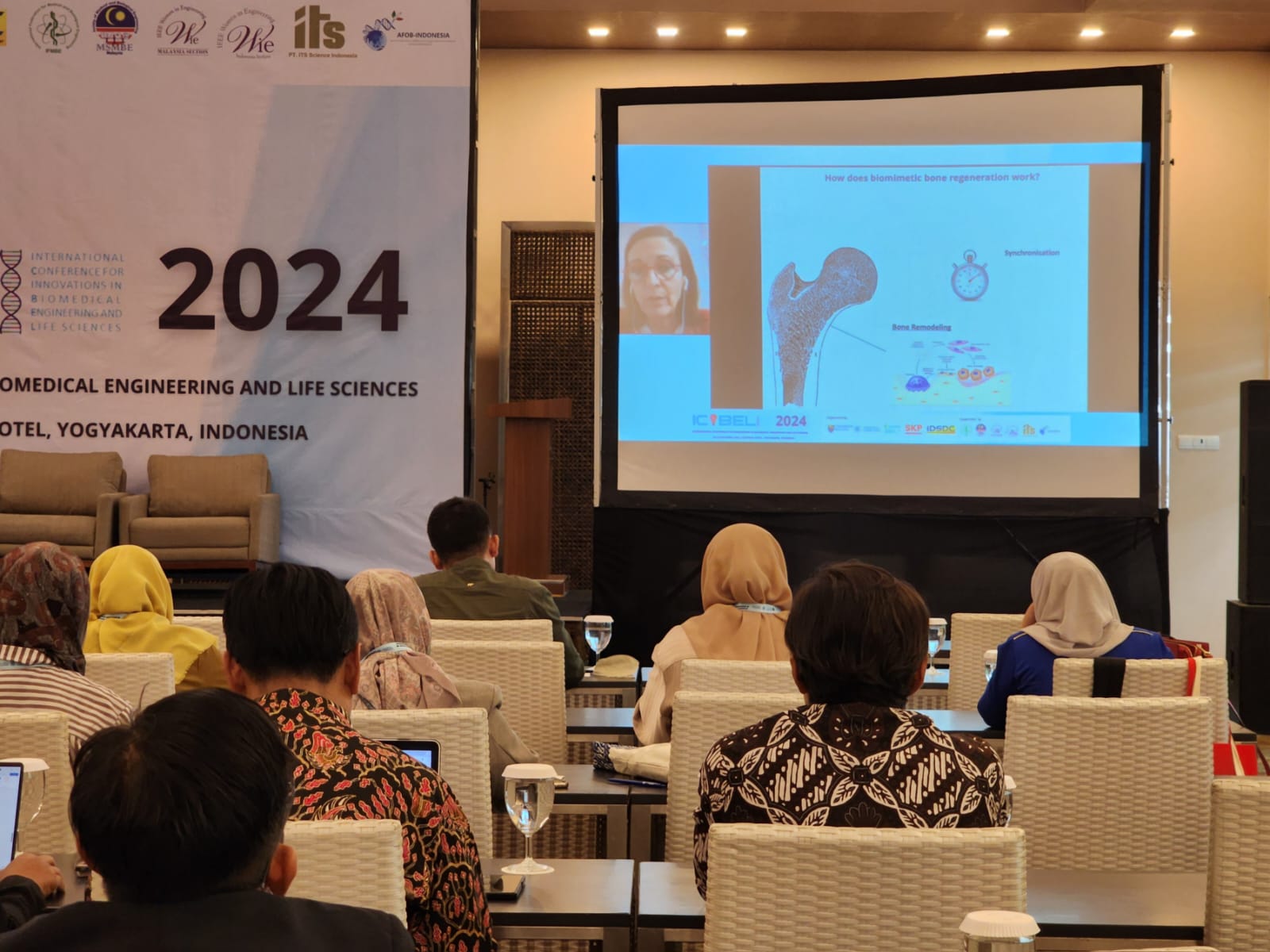The International Conference for Innovations in Biomedical Engineering and Life Sciences (ICIBEL) 2024, co-organized by the University of Malaya (UM) and Universitas Gadjah Mada (UGM) on 22-23 September 2024, served as a key platform for sharing knowledge in biomedical engineering and health product innovation, while also supporting the development of human resources in the healthcare sector.
The conference brought together speakers from countries such as Croatia, India, Poland, Indonesia, Malaysia, Serbia, Turkey, France, Spain, and Germany. One of the standout sessions was the Technology Transfer Forum, featuring two renowned experts: Professor Maria Pau Ginebra from Universitat Politècnica de Catalunya (Spain) and Professor Nihal Engin Vrana from INSERM, The University of Strasbourg (France), who is also the director of Spartha Medical.
Professor Maria Pau Ginebra shared her experience in developing and commercializing calcium phosphate cement as a bone substitute, which is now widely used by clinicians across Europe. “Of course, we’ve had a long journey to get to where we are today, but the key is to deeply understand our innovation and continuously develop it,” said Professor Maria. She also explained how the acquisition of her company by a major European firm positively influenced the distribution of this technology.
Meanwhile, Professor Nihal Engin Vrana presented the antibacterial coating innovation for biomedical implants developed at The University of Strasbourg, which is now commercialized through Spartha Medical. “In cases of infection, tissue regeneration is often hindered. The antibacterial coating technology we developed is designed to address this issue, and we offer it in an easy-to-use spray form for clinicians,” explained Professor Engin.
The forum's moderator, Dr. Ika Dewi Ana from FKG UGM, highlighted that the journey to bringing health devices and biomedical innovations to market requires time, thought, and consistent effort. “We are fortunate to learn directly from the experiences of Professor Maria and Professor Engin, who are also collaborating with FKG-UGM within the BioTUNE consortium,” she added.
This Technology Transfer Forum not only provided a space for knowledge exchange but also played an important role in supporting several Sustainable Development Goals (SDGs). Innovations in bone substitutes and antibacterial coatings support Goal 3 (Good Health and Well-being) by offering more effective and safer medical solutions for patients.
The commercialization of health products also contributes to Goal 9 (Industry, Innovation, and Infrastructure), promoting the development of a sustainable health technology industry. Furthermore, the international collaboration between universities, companies, and the medical community supports Goal 17 (Partnerships for the Goals), strengthening global networks in health technology innovation.
Authors: Ika, Christia, Pram

